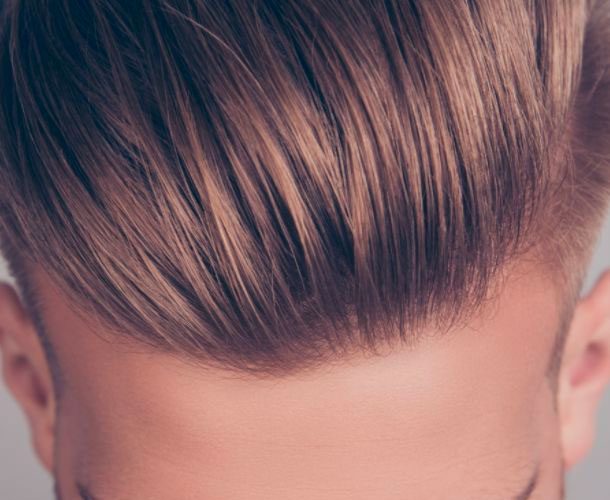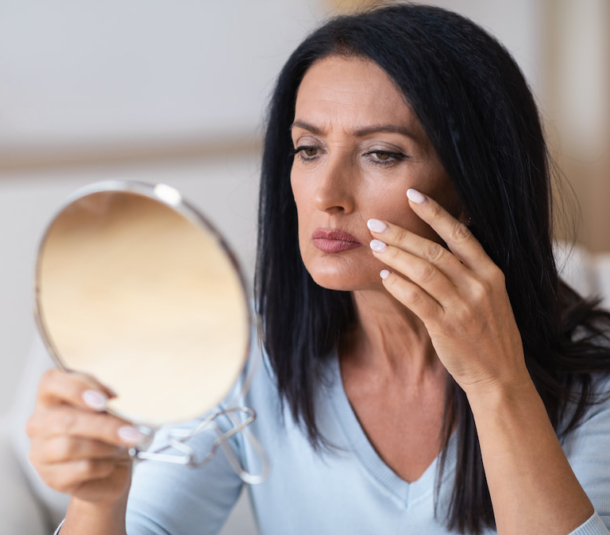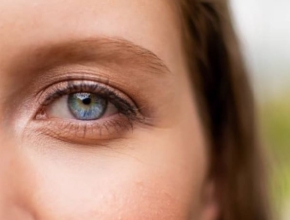News
How to Tighten Sagging Skin Caused by Weight Loss Injections
While weight loss injections have emerged as a popular way to shed weight quickly, they come with an undesirable consequence: loose skin. Saggy skin after weight loss can knock your confidence and leave you feeling self-conscious. In this blog, we’ll explore how to tighten loose skin that can be a common side effect of weight loss injections.
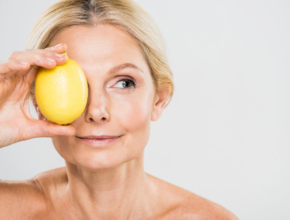
Lemon Bottle: Fat-Dissolving Fad or Effective Treatment?
The quest for the perfect silhouette has led many to explore non-invasive fat reduction methods, that promise results without the risks and downtime associated with surgical procedures. Among these options, a treatment known as “Lemon Bottle” has gained attention, particularly on social media.
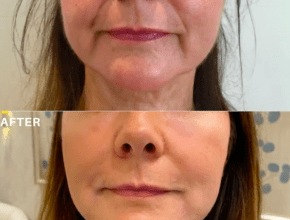
How To Treat Marionette Lines
Marionette lines are facial wrinkles that run vertically from the corners of the mouth down to the chin, resembling the lines on a marionette puppet’s face. They are a natural part of aging, caused by a combination of factors including a reduction in skin elasticity and collagen, and can be increased by exposure to sun and smoking.
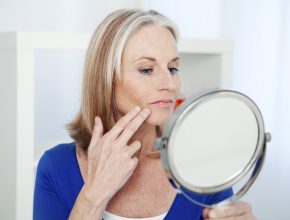
How To Treat Ageing Sad Mouth
Marionette lines, also known as ‘‘ageing sad mouth’’, are lines which run from the corners of your mouth down to your chin. They can make you look sad, even when you’re happy and smiling, and tend to age us prematurely. At Doctor Nyla, we recognise the profound effect marionette lines can have on your self-esteem. Luckily, we offer a range of treatments to improve the appearance of marionette lines, from anti-wrinkle injections and dermal fillers to our silhouette soft thread lift.
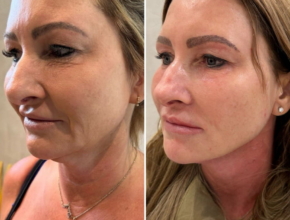
How to Get A Better Jawline
Reviewed by Dr Nyla, (MBCHB (Hons.). MRCGP (Dist.). DFFP. DPDermatology. BACD. Last updated: 16th December 2024.
Jawline exercises like jaw clenching and gum chewing are popular but lack scientific evidence for effectiveness, since most jawline issues come from age-related volume loss, not weak muscles. The best solutions are cosmetic surgery (expensive and invasive) or dermal fillers (recommended). Jawline fillers use hyaluronic acid to add volume and definition, show quick results lasting about a year, require no downtime, and can be done gradually. Supporting this with good hydration, a healthy diet, and adequate sleep may help overall appearance.
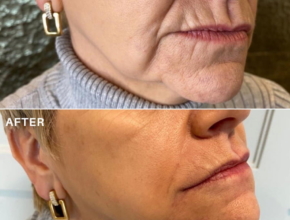
How To Tighten & Get Rid Of Sagging Jowls
Reviewed by Dr Nyla, (MBCHB (Hons.). MRCGP (Dist.). DFFP. DPDermatology. BACD. Last updated: 22nd January 2025.
Sagging jowls are loose skin beneath the chin caused mainly by ageing and genetics, which lead to collagen loss, though lifestyle factors such as smoking, sun damage, and rapid weight loss can make the problem worse. Treatment options range from facial exercises (which may strengthen muscles but won’t address loose skin) to non-surgical procedures like dermal fillers, Ultherapy, and laser treatments that offer visible results with minimal downtime, through to surgical options such as liposuction or neck lifts that provide dramatic results but require significant recovery time and cost. Non-surgical treatments have become popular as a middle ground, offering effective results without the expense and downtime of surgery.
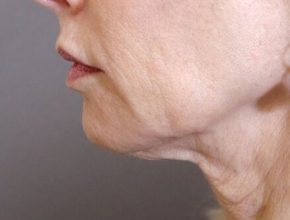
What Causes Turkey Neck and How Can it Be Treated?
Learn about the main causes of turkey neck, a common sign of ageing. Get insights into prevention methods and possible non-surgical treatments for this condition.
If you would like to arrange a consultation, or simply want further advice please contact us today. Call us on 0800 009 6661 or use our Contact Form for a free neck or décolletage consultation.
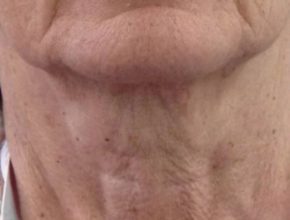
The 5 Best Treatments to Lift and Tighten an Ageing Neck
Learn about the main causes of turkey neck, a common sign of ageing. Get insights into prevention methods and possible non-surgical treatments for this condition.
If you would like to arrange a consultation, or simply want further advice please contact us today. Call us on 0162 532 4244 or use our Contact Form for a free neck or décolletage consultation.
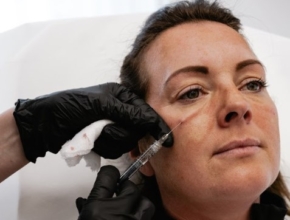
A full guide to dermal eye fillers | Should you consider dermal eye filler treatment?
Dermal eye fillers are a series of injections that are administered into the eye area to lighten the tear trough (or under eye). As we age, collagen production begins to decrease, and the body breaks down the hyaluronic acid present. Dermal fillers are an ideal way in reintroducing hyaluronic acid back into the skin; adding volume to facial areas such as the cheeks, lips, and under eye.
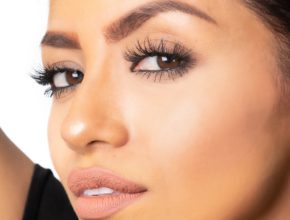
A full guide to dermal cheek fillers | What you should know before cheek filler treatment
Slight modifications, or “tweakments”, are becoming popular with younger generations, such as Gen Z or millennial audiences. In a recent survey, comprised of primarily 13- to 24-year-olds, 66% of around 50,000 young people responded that they would like to change their facial features; with around 9% of these wanting to modify their cheeks.
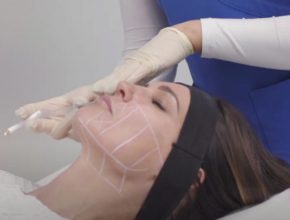
What are the different types of dermal fillers available for the eyes and tear troughs? Finding suitable dermal eye filler treatment
Dermal fillers have increased in popularity over the years, and more recently in the UK. The safe non-invasive treatment involves injecting a soft gel into specific facial areas that may have lost volume, such as the cheeks, and under the eyes (also called tear trough). With a range of hyaluronic acid (HA) fillers on the market, certain dermal filler products are suitable for the under eye area.
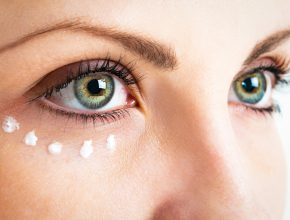
How safe are dermal eye fillers?
Dermal fillers have continued to gain popularity, which can be linked to the importance of social media in today’s culture and obtaining the perfect “Instagram face”. However, administered correctly, dermal fillers can help enhance an appearance in a subtle and effective manner. Although the 2021’s Botulinum Toxin and Cosmetic Fillers (Children) Act made it illegal to administer fillers to those under 18, they are still under-regulated in the UK; thereby resulting in clinics offering dermal filler treatments despite not having the appropriate qualifications.
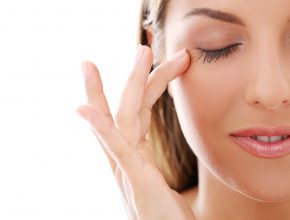
How long do dermal eye fillers last? | What you should know about tear trough treatment
Dermal fillers are a popular non-invasive treatment that can be applied in various parts of the face, including the cheeks, the lips, and under the eyes, or “tear trough treatment”. These temporary procedures are good alternatives to plastic surgery and are becoming increasingly common in mainstream society. Most recently, popular singer Katy Perry stated she underwent filler treatment “for the hollowing” and dark circles in the eye area.
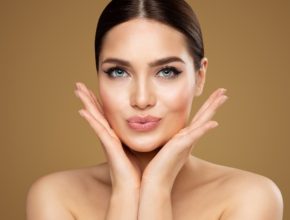
How much dermal filler is required in the cheeks?
Injectable treatments, such as dermal cheek fillers, date back to the late 1800s shortly after the invention of the syringe. However, it wasn’t until 1981, when bovine collagen became the first FDA-approved injectable filler for cosmetic use, and non-invasive injections became more widely available. Nowadays, there are various dermal filler treatments and products that address certain facial concerns in different areas.
If you are seeking dermal cheek filler treatment, you may want to understand the complexity of the procedure and what you can expect. Depending on specific factors, the amount of dermal filler can vary when applied to the cheeks.
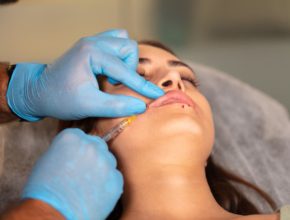
What are the benefits of dermal lip fillers? | What to consider
In a recent study, the Oral Health Foundation discovered that half of the British adult population are made to feel anxious about their smile; around 31% are made to feel inadequate due to social media and celebrity culture. If somebody is feeling self-conscious about their lip concerns, this can affect their overall wellbeing, and they may want to look for a helpful solution.
Dermal fillers are non-invasive treatments that help add volume to otherwise thinner areas of the face. The procedure involves extra-fine needles to the treatment area, such as the cheeks and lips, to add hyaluronic acid which is a natural volumiser. There are many reasons somebody may want dermal fillers; whether to fix a problem area or to help boost their confidence.
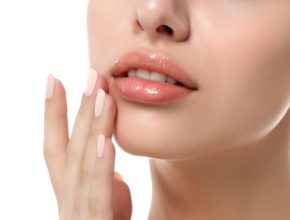
How long do dermal cheek fillers last?
According to a 2019 study, there were over 13.6m non-surgical treatments carried out worldwide; 4.3m of which were dermal fillers. In a society where celebrity culture and social media are becoming more relevant, this figure has only increased. Many turn to dermal fillers to fix problems with their lips, cheeks and under eyes as they are a temporary solution and can help smooth out lines and wrinkles.
Before undergoing treatment, it is important to understand the facts and what you can expect from dermal fillers. This includes how long they will last and how often you might have to top them up.
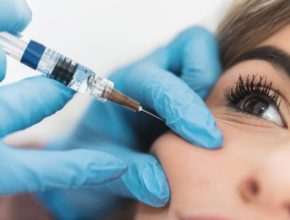
What are the benefits of dermal cheek fillers?
Over recent years, dermal fillers are becoming as popular in the United Kingdom as it is in other countries such as the USA and Western Europe. In a recent survey, 59% of respondents compared dermal fillers to more typical expenditures such as getting a haircut or a manicure. Dermal fillers have started to become normalised in everyday culture, and their popularity has only increased. Before seeking dermal filler treatment, consider how it will affect your face and the benefits you can expect after the procedure.
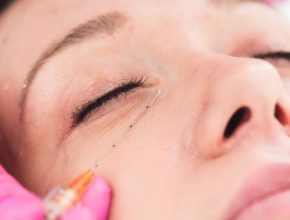
What are the benefits of dermal eye fillers?
Dermal fillers are one of the most popular non-invasive treatments that are widely available in the USA and most recently, in the UK. In 2020 alone, over 2.6 million patients underwent hyaluronic acid fillers, according to the National Plastic Surgery statistics. This was at the peak of the COVID-19 pandemic, however, when various clinics were forced to close or operate at a restricted level; suggesting this figure has risen over the last couple of years. These types of treatments can be applied to various parts of the face, including the cheeks, the lips, and the under eye area.
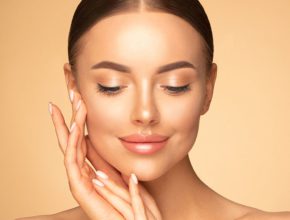
What are the different types of dermal cheek fillers available?
Nowadays, dermal fillers are seen by many to be as normal as getting a haircut or their lashes done. 66% of 50,000 young people said that they would like to change their facial features in a recent survey; 9% of these would specifically like to modify their cheeks.
According to Jenni Middleton, the director of beauty at WGSN, “tweakment culture” is apparent in society, primarily due to the focus on social media and the use of filters. These non-invasive procedures are effective temporary alternatives to plastic surgery and can help to boost confidence, particularly if a person is self-conscious about their facial concerns.
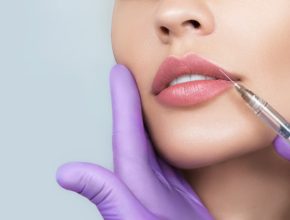
Dermal Lip Fillers | How long do they last?
As we get older, our bodies naturally stop producing collagen as frequently. In these cases, many people turn to dermal fillers. This non-invasive treatment includes a soft gel-like substance that is injected under the skin to add volume in certain areas and smooth any wrinkles. Popular areas include the cheeks, eyes and lips; with the latter appealing specifically to Gen Z and younger millennials.
This guide will take a closer look at dermal lip fillers and how long they last. We will look at the longevity of the treatment and what you should consider.
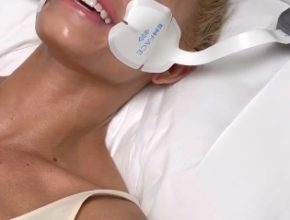
Jessica Simpson Shares her Emface Treatment!
The beautiful Jessica Simpson, who’s an Emface partner, shows her Emface journey!
Check out the link below to see her video on the treatment!
https://www.instagram.com/reel/CjqZ24Npjbb/
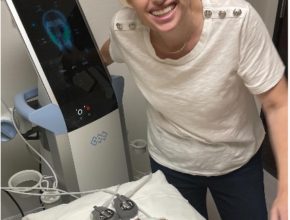
Rebel Wilson gets her face TIGHTENED with EMFACE!
The wonderful Rebel Wilson, who’s an Emface partner, shows her Emface journey!
Check out the link below to see her video on the treatment!
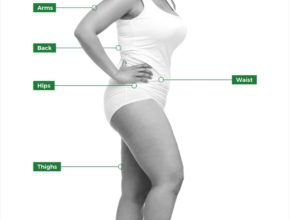
Emerald Laser Fat Reduction
NEW!! The Emerald laser is an FDA Market-Cleared full body fat loss treatment that allows clients to target areas of stubborn fat. Emerald Laser treats overall body circumference and is the ONLY device FDA cleared to treat those with up to 40 BMI. Applied externally, the laser targets excess fat by emulsifying fatty tissue through the use of cold laser technology.
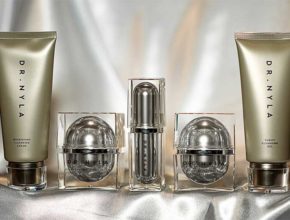
Doctor Nyla Launches Science Backed Skincare Solutions
Consciously created and combining the latest skincare science, award winning Doctor Nyla proudly launches Dr. Nyla Skincare.

How long does it take for dermal fillers to dissolve?
Once Dr Nyla has worked her magic with dermal fillers and made you look like your very best self, you may start asking – how long does it take for dermal fillers to dissolve?
You can be forgiven for wishing that you could enjoy the rejuvenating benefits of your dermal fillers forever, but sadly the effect will diminish over time. This article will help you understand three important things if you’re wondering how long dermal fillers last:
- Why dermal fillers dissolve
- How long it takes for dermal fillers to dissolve
- What to do after dermal fillers treatment.
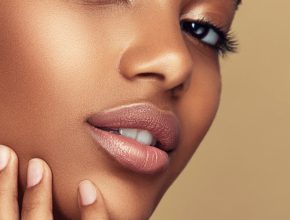
How to Brighten Dull Skin
Flawless skin looks fresh and luminous, but sometimes it is hard to know how to brighten dull skin. Many of us struggle with skin that looks flat and drab. Its texture may even be coarse and dry. Dr Nyla’s Medispa offers a range of peels and facials to banish dull skin and restore your natural radiance.
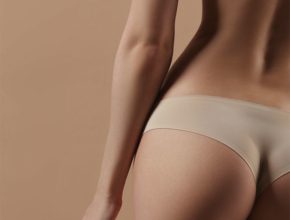
How get rid cellulite on back of legs
Most of us have wondered how to get rid of cellulite on the back of the legs, buttocks, or stomach. After all, 98% of women are affected by cellulite to some degree. The bumpy pitted skin so characteristic of the condition usually appears after puberty and often gets worse with age. Widespread and harmless it may be, but ‘orange peel’ thighs make us less inclined to show a leg and can wreck our self-confidence.
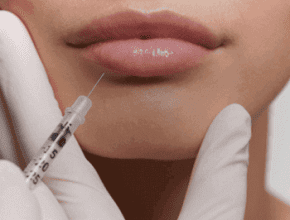
How to reduce swelling after lip fillers
Lip fillers will give you gorgeous, super-hydrated lips but don’t be surprised if you have a little swelling after your treatment. It will help to have a few tips on how to reduce swelling after lip fillers. The inflammation is usually at its worst the day after having the fillers but is only temporary and will go down naturally within a few days.
There are a few things that you can do to help your lips to recover as quickly as possible.
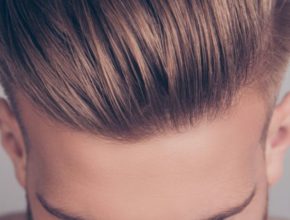
What is a FUE Hair Procedure?
We are all familiar with the jokes about toupees and comb-overs, but it is no fun feeling self-conscious about your hair every day and, in many cases, watching as your hair loss progresses over time. Hair loss can seriously affect self-esteem, and until recently, the only way to deal with it was to cover up the area concerned. Fortunately, hair transplant techniques like the FUE are now available to provide excellent – even life-changing – results.
